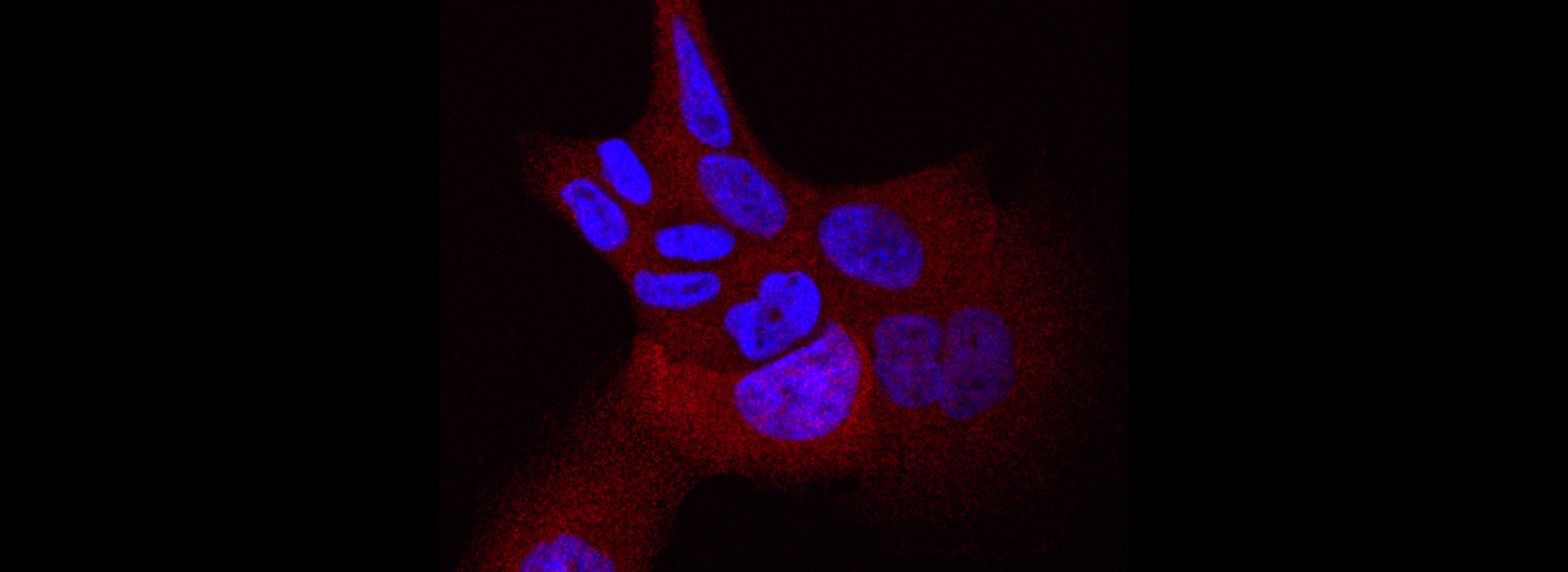Biomarker may bring improved therapy to lung cancer patients
Prof. Yosef Yarden and his team in the Department of Immunology and Regenerative Biology have reported findings that may lead to relapse-free treatment for a sizeable subgroup of lung cancer patients. In a study in mice, the scientists identified a biomarker that may help physicians select lung cancer patients who can be treated with a single antibody-based drug likely to bring about full remission, without cancer relapse. Their research was published in August 2023 in the journal Cell Reports Medicine.
Although the majority of lung cancers are due to tobacco smoking, the second-largest fraction of cases affects nonsmokers, characterized by mutations in a gene called EGFR (epidermal growth factor receptor). Reviewing clinical trial literature, Dr. Ilaria Marrocco, then a postdoctoral fellow in the Yarden lab (now a researcher at Università Cattolica del Sacro Cuore in Italy), realized that all patients with EGFR-positive lung cancer were being treated using the same multidrug protocol, regardless of which of the 30 known EGFR mutations were harbored in their individual tumors. These patients eventually developed drug resistance, leading to cancer relapse. Dr. Marrocco wondered whether, by sorting lung tumors according to specific EGFR mutations, it might be possible to create a more personalized drug protocol and achieve better results.
The scientists focused on one of the two most common gene variants associated with EGFR in lung cancer: the L858R mutation, in which a single amino acid, out of several hundred, is replaced with another one. This mutation occurs in about 40 percent of lung cancer patients whose tumors are characterized by EGFR mutations.
The researchers tried countering the L858R mutation by treating mice bearing this mutation with an antibody drug called cetuximab, known by its trade name Erbitux®, which was originally developed based on research conducted by Prof. Yarden and the late Prof. Michael Sela. Erbitux has been approved by the FDA for the treatment of colon and head and neck cancers.
“After the treatment with Erbitux, the lung tumors of mice shrank and did not reappear, not even after a long while,” Prof. Yarden says. “These results indicate that, for the large number of human lung cancer patients who have the L858R mutation, a single drug might offer a path toward full recovery, without the devastating phenomenon of cancer relapse.”
The new study also explains why previous attempts to treat EGFR-mutated lung cancer with Erbitux had failed or, at best, produced conflicting results. Explains Prof. Yarden, “Since new EGFR inhibitors were approved as lung cancer drugs nearly 10 years ago, all patients now receive these anti-EGFR medications, irrespective of the identity and number of their EGFR mutations. They are highly effective for a while, but they permit the emergence of secondary mutations that accelerate cancer relapse. By the time Erbitux is given, it is usually ineffective because it can work only against certain EGFR mutations. Our study demonstrates the importance of preselecting lung cancer patients who can be effectively treated with Erbitux from the start, based on their mutation profile.”
The next step will be to launch a clinical trial to establish the effectiveness of this treatment for human lung cancer patients, something that will be made easier by the fact that Erbitux has already been approved for treating other cancer types.

Prof. Yosef Yarden is Head of the Dwek Institute for Cancer Therapy Research. His research is supported by the Dr. Miriam and Sheldon G. Adelson Medical Research Foundation and the Marvin Tanner Laboratory for Research on Cancer. Prof. Yarden is the incumbent of the Harold and Zelda Goldenberg Professorial Chair in Molecular Cell Biology.
